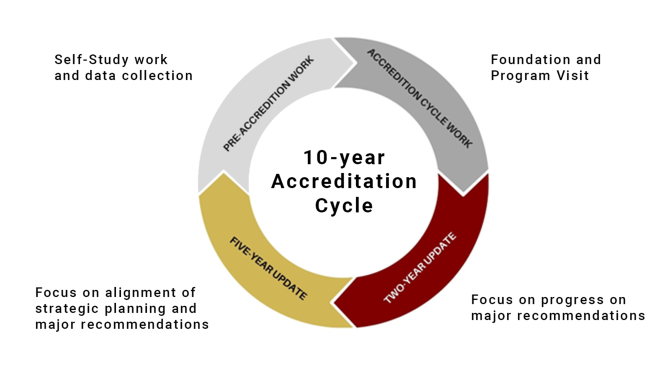
Accreditation Process - Independent Schools
Accreditation Process - Independent Schools
Accreditation is not a single event, but rather an ongoing, voluntary cycle of comprehensive internal and external assessments, short and long-term strategic planning, and periodic reporting sustained by professional partnership and support. In addition to the decennial cycle, the NEASC Commission on Independent Schools requires demonstrated continued alignment with NEASC Standards through an annual report, the two-year, and the five-year updates to maintain their NEASC accreditation.

One of the requirements of membership in the New England Association of Schools and Colleges is the completion and submission of an annual report of your school’s information by the school head. Heads of Schools will be contacted with reminders and instructions for doing so each year. If you have any general questions regarding this requirement or process, please do not hesitate to contact us at cis@neasc.org.
View a list of other reports required from schools during the accreditation cycle.

